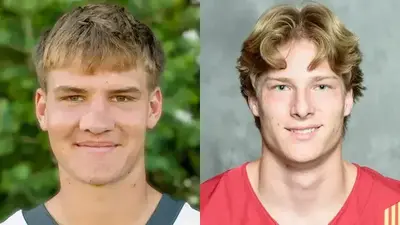Ever since she was in high school, Piper (Kucera, ’10) Kroeze knew she wanted to be an editor and that, one day, she would move to Hollywood.
“I wanted to edit, and I wanted to do movies, and then it happened,” she says.
Over the past 12 years, she has worked as an editor for television shows like Quantum Leap, You, and God Friended Me. She just cut her first feature film, Unit 234, a thriller directed by Andy Tennant that follows a remote storage employee who “must fight to survive the night against a ruthless gang, dead set on retrieving their precious cargo at any cost.”
“It’s tough to pinpoint exactly when it happened,” she says. But like any good editor, she can look back and identify events in her story arc that got her to where she is today.
As a kid, she enjoyed making movies with a big VHS camera; she’d shoot footage of her friends at school in chronological order and then turn the footage into a short film. Eventually she moved on to Windows Movie Maker, a computer software that allowed her to take recordings and try out nonlinear editing – that is, making edits to a video without it being in chronological order.
“I started editing and putting music to it. And I realized, ‘Oh, if you move this clip around, you can make it funny. If you put music here, you can make it serious. You can make viewers feel something, just by how you put it together. That was a lightbulb moment for me.”
When it came time to look for a place to go to college, “Dordt” kept showing up in her Internet searches. Then at a college fair in central Iowa, she spotted a Dordt booth. Mark Volkers, who had recently started Dordt’s digital media production program, was at the booth.
“He told me about the program, and it sounded really cool because it seemed very hands-on and editing-centric, which is what I wanted in a program,” Kroeze recalls. “I didn’t want to go to a big film school because, at film schools, you mostly learn film theory but might not get as many opportunities to make movies. Volkers got me really excited about going to Dordt, and he’s probably the reason that I ended up going there.”
As a student, Kroeze appreciated that Dordt was small enough that where “you knew of almost everybody, but it was big enough where I didn’t feel like everyone knew everything about everybody. There’s a comfort in being able to see faces and recognize people all the time – that brings with it a sense of community.”
She also felt that she had many opportunities at Dordt.
“Maybe a bigger university has a wider variety of opportunities, but everyone doesn’t have access because there are so many students vying for the same opportunities. At Dordt, I could start a Film Club and do film screenings. I could participate in Comedy League. I could help lead worship on campus. I could be involved in choir. At Dordt, there were a lot of opportunities because there were fewer people, so there was more room to pursue what you wanted.”
Kroeze had opportunities in the classroom, too. During her junior year, she took an advanced editing class. As part of an assignment, she had to interview an editor who worked in the industry.
“We had to pick a name out of a hat, and I happened to get Alan Heim, a well-known film editor in L.A. I connected with him.”
Kroeze also took advantage of the opportunity to study abroad in Los Angeles as part of the L.A. Film Studies Center.
That semester-long experience made it easier for her and her husband Jacob (’10) to make the cross-country move to live in L.A. after graduation. But it didn’t make landing an editing job any easier.
Original source can be found here.

 Alerts Sign-up
Alerts Sign-up